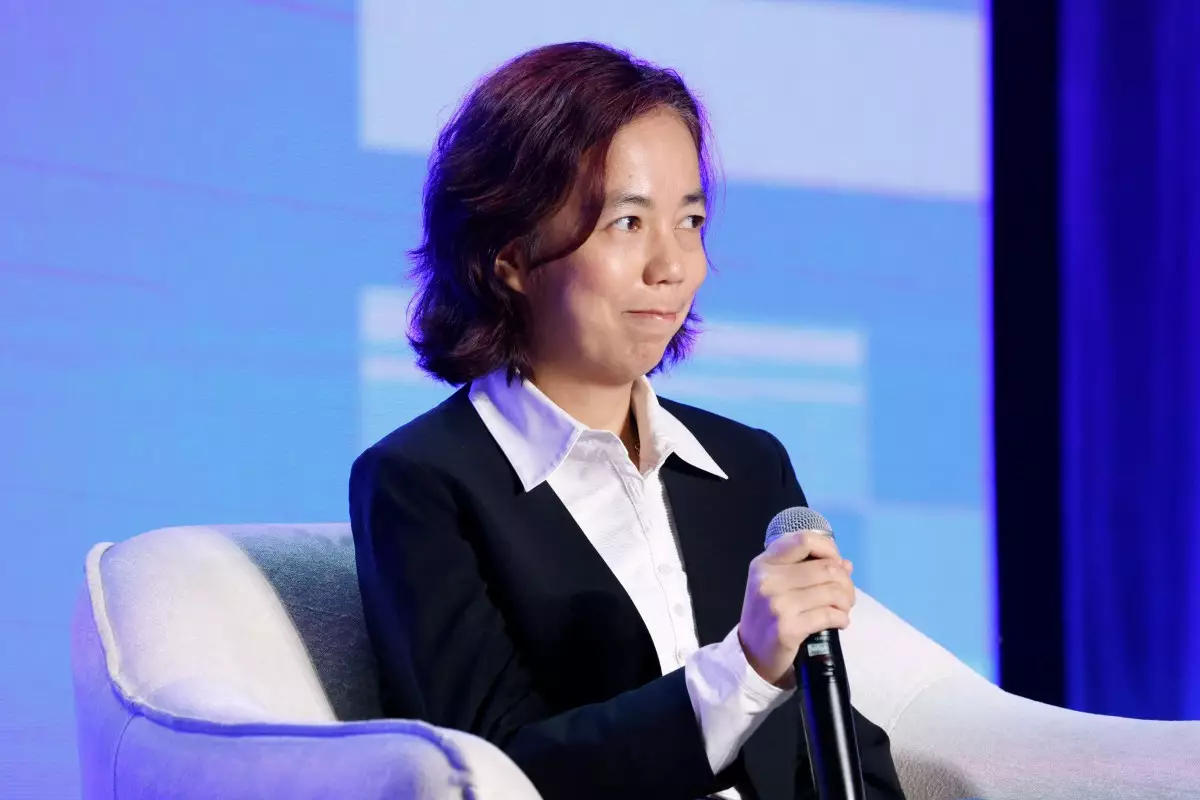With the rapid advancements in artificial intelligence, cloud providers are on a relentless quest to capture a slice of the burgeoning AI startup ecosystem. The latest entrant to this competitive narrative is World Labs, led by prominent AI expert Fei-Fei Li. The announcement that World Labs has aligned itself with Google Cloud as its principal computing partner could potentially lead to a monumental financial partnership. The implications of this collaboration extend beyond mere computational needs; it symbolizes the increasing relevance of cloud platforms in the AI arena.
The underlying strategy of cloud service providers like Google, Amazon, and Microsoft is clear: they are actively seeking partnerships with AI firms that have the potential to become giants in the industry. The relationship between World Labs and Google signifies more than just a technical alliance; it represents a calculated move to establish a long-term relationship with a company poised to pioneer innovations in AI models designed for spatial intelligence.
Prior occurrences in the industry have set a precedent. Notable AI entities such as OpenAI and Anthropic have anchored their operations with cloud providers like Microsoft Azure and AWS. These partnerships come with significant financial implications, often involving multi-million dollar contracts—an attractive venture for cloud services eager to expand their foothold in a market characterized by insatiable demand for computational power.
World Labs is not just another AI startup; it is pioneering a new frontier by focusing on “spatially intelligent” AI models. With its recent funding round of $230 million, the valuation exceeding a billion dollars is indicative of the high-stakes nature of this market. According to James Lee, Google Cloud’s general manager of startups and AI, the goal is to develop models capable of crude interactions with multimedia data, thereby positioning World Labs at the cutting edge of AI technology.
The funding is a testament to the growing recognition of World Labs’ vision and the vast potential it holds for the future of AI-driven applications. The intersection of AI with video and geospatial data is particularly intriguing, opening avenues for advanced analytics, real-time processing, and immersive experiences.
Fei-Fei Li’s past role as chief scientist at Google Cloud adds an interesting layer to this partnership. However, both parties have been careful to downplay this connection, emphasizing that decisions are rooted in World Labs’ technological requirements rather than previous affiliations. Li’s deep-rooted ties to Google might suggest preferential treatment, yet Google’s assertions that their superior services—like AI tools and infrastructure—are the primary draw cannot be overlooked.
In an industry rife with intense competition, the ability to distinguish oneself also lies in the unique offerings of each cloud provider. Google Cloud’s choice to promote its proprietary tensor processing units (TPUs) reflects a broader industry trend. Even as it attempts to move more startups toward TPUs—a strategic shift likely intended to reduce reliance on Nvidia—World Labs opted to utilize Nvidia GPUs for its current training endeavors. Such decisions illustrate the complex dynamics startups navigate while considering ideal platforms for their operations.
As promising as the collaboration is, both Google Cloud and World Labs face significant challenges in fulfilling their ambitious goals. The ongoing scarcity of Nvidia GPUs poses limitations, creating added pressure to deliver on commitments. This constraint has already affected other cloud providers, like Microsoft, which reportedly struggles to meet the computational demands of partners like OpenAI.
Furthermore, while World Labs has secured a partnership with Google, the deal is not exclusive. This leaves room for future collaborations with other cloud providers, thereby fostering an environment that encourages competition among cloud services vying for a stake in future AI advancements.
As the landscape of AI continues to evolve, the importance of partnerships between AI startups and robust cloud infrastructure will only increase. Companies like World Labs are set to challenge conventional assumptions within AI, and their ability to leverage cloud resources effectively could determine their success.
In essence, the race for AI supremacy is not merely about securing high-profile deals; it’s about understanding and optimizing the technological landscape to harness AI’s full potential. As cloud providers jockey for position in this dynamic market, their alliances with forward-thinking startups like World Labs will shape the future trajectory of artificial intelligence development.

